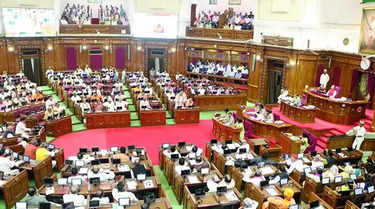The Uttar Pradesh government has passed the contentious Nazul Land Bill, which bars the conversion of Nazul land into freehold in favor of private individuals. The bill, notified on March 7, 2024, under the Yogi Adityanath administration, aims to prevent the exploitation of public land by private entities.
The legislation, which went largely unnoticed by the public, represents a significant shift in land policy. Nazul land, historically designated for public use, had been subject to various irregular conversions to freehold status, benefiting private parties. This bill seeks to curtail these practices and maintain the land for public and governmental purposes.
Legal experts and urban planners have noted the potential impact of the new law on urban development and real estate markets. By preventing private ownership of Nazul land, the government intends to safeguard public interests and ensure that such land remains available for community use, infrastructure projects, and other public services.
The bill has garnered mixed reactions from different sectors. Supporters argue that it is a necessary step to curb illegal land conversions and protect public assets. Critics, however, contend that the law could stifle development and limit investment opportunities in the state. They point out that some private developments on Nazul land had contributed to economic growth and urbanization, providing jobs and improving infrastructure.
Despite these concerns, the government remains firm in its stance. Officials argue that the bill will lead to more transparent and equitable land use policies, reducing the risk of corruption and land disputes. They emphasize that the public interest must take precedence over private gains in matters of land management.
The quiet passage of the Nazul Land Bill has also raised questions about the transparency of the legislative process. The lack of public debate and minimal media coverage have led some to accuse the government of pushing the bill through without adequate consultation. In response, government representatives assert that the bill was necessary to address urgent land management issues and prevent further exploitation of public assets.
Urban development authorities and municipal bodies are now tasked with implementing the new regulations. They will need to review and potentially reverse any recent conversions of Nazul land to freehold status. This process is expected to be complex and could lead to legal challenges from affected parties.
Real estate analysts are closely watching the situation to assess its impact on the property market in Uttar Pradesh. The restrictions on Nazul land conversions could create a shortage of developable land in urban areas, potentially driving up property prices. However, it may also encourage developers to seek alternative locations and innovative solutions for their projects.
The bill’s passage highlights the broader challenges of land management in India, where balancing public and private interests has often been contentious. As Uttar Pradesh moves forward with its new policy, other states may also consider similar measures to regulate land use and prevent exploitation.
The Nazul Land Bill represents a pivotal moment in Uttar Pradesh’s approach to land management. While its long-term effects remain to be seen, the legislation underscores the importance of protecting public assets and ensuring that land use policies serve the broader community’s needs.




 Essar’s IT Firm Black Box To Raise Rs 410 Crore Via Preferential Issue
Essar’s IT Firm Black Box To Raise Rs 410 Crore Via Preferential Issue 